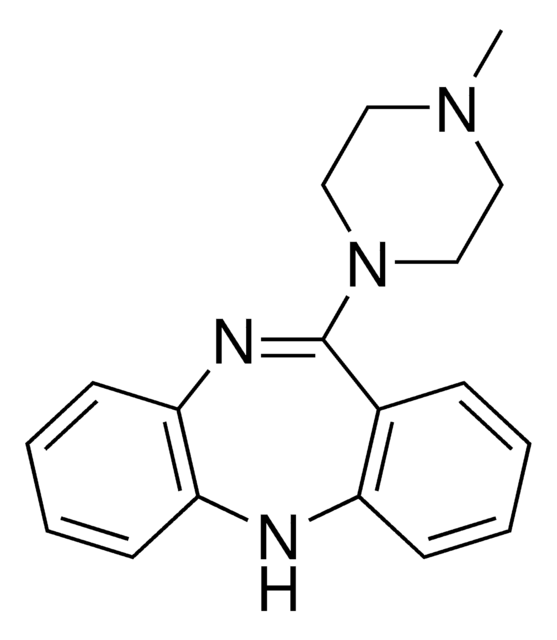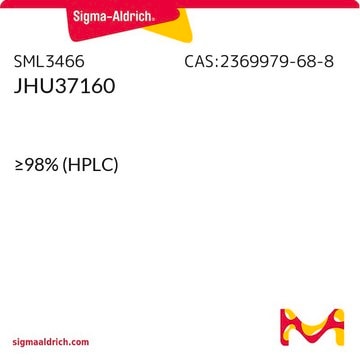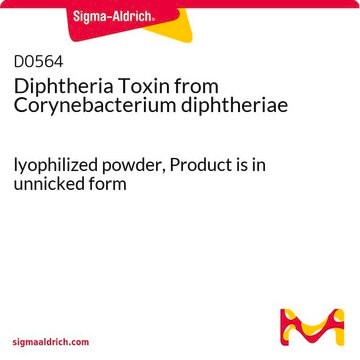SML2392
DREADD Agonist 21 dihydrochloride
≥98% (HPLC), powder, DREADD agonist
Synonyme(s) :
11-(1-piperazinyl)-5H-Dibenzo[b,e][1,4]diazepine dihydrochloride, 11-(Piperazin-1-yl)-5H-dibenzo[b,e][1,4]diazepine; 11-Piperazinyldibenzo[b,e][1,4]diazepine dihydrochloride, Compound 21 dihydrochloride
About This Item
Produits recommandés
Nom du produit
DREADD Agonist 21 dihydrochloride, ≥98% (HPLC)
Essai
≥98% (HPLC)
Forme
powder
Conditions de stockage
desiccated
Couleur
yellow to brown
Solubilité
H2O: 2 mg/mL, clear
Température de stockage
−20°C
Chaîne SMILES
C1(C=CC=C2)=C2C(N3CCNCC3)=NC(C=CC=C4)=C4N1
InChI
1S/C17H18N4/c1-2-6-14-13(5-1)17(21-11-9-18-10-12-21)20-16-8-4-3-7-15(16)19-14/h1-8,18-19H,9-12H2
Clé InChI
JCBYXNSOLUVGTF-UHFFFAOYSA-N
Actions biochimiques/physiologiques
Mention d'avertissement
Warning
Mentions de danger
Conseils de prudence
Classification des risques
Acute Tox. 4 Oral
Code de la classe de stockage
11 - Combustible Solids
Classe de danger pour l'eau (WGK)
WGK 3
Point d'éclair (°F)
Not applicable
Point d'éclair (°C)
Not applicable
Faites votre choix parmi les versions les plus récentes :
Certificats d'analyse (COA)
Vous ne trouvez pas la bonne version ?
Si vous avez besoin d'une version particulière, vous pouvez rechercher un certificat spécifique par le numéro de lot.
Déjà en possession de ce produit ?
Retrouvez la documentation relative aux produits que vous avez récemment achetés dans la Bibliothèque de documents.
Notre équipe de scientifiques dispose d'une expérience dans tous les secteurs de la recherche, notamment en sciences de la vie, science des matériaux, synthèse chimique, chromatographie, analyse et dans de nombreux autres domaines..
Contacter notre Service technique









